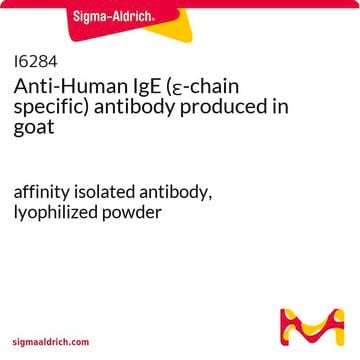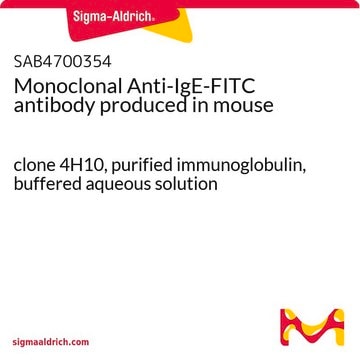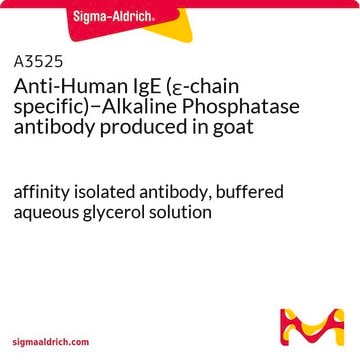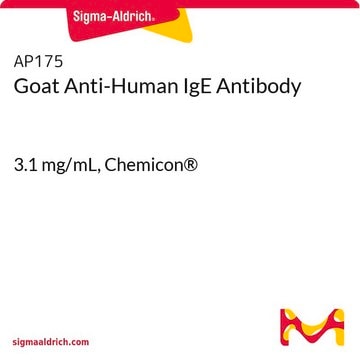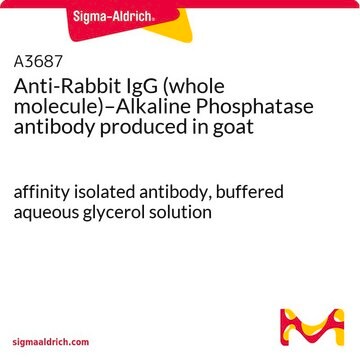A3076
Anti-Human IgE−Alkaline Phosphatase antibody, Mouse monoclonal
clone GE-1, purified from hybridoma cell culture
Synonyme(s) :
Monoclonal Anti-Human IgE, Monoclonal Anti-Human IgE−Alkaline Phosphatase antibody produced in mouse
About This Item
Produits recommandés
Source biologique
mouse
Niveau de qualité
Conjugué
alkaline phosphatase conjugate
Forme d'anticorps
purified from hybridoma cell culture
Type de produit anticorps
secondary antibodies
Clone
GE-1, monoclonal
Forme
buffered aqueous solution
Espèces réactives
human
Technique(s)
direct ELISA: 1:6,000
dot blot: 1:1,000
Isotype
IgG2b
Conditions d'expédition
wet ice
Température de stockage
2-8°C
Modification post-traductionnelle de la cible
unmodified
Vous recherchez des produits similaires ? Visite Guide de comparaison des produits
Description générale
Application
Western Blotting (1 paper)
- immunoblot assays
- direct ELISA
- dot blot
Actions biochimiques/physiologiques
Forme physique
Remarque sur l'analyse
Clause de non-responsabilité
Vous ne trouvez pas le bon produit ?
Essayez notre Outil de sélection de produits.
Code de la classe de stockage
10 - Combustible liquids
Classe de danger pour l'eau (WGK)
WGK 3
Point d'éclair (°F)
Not applicable
Point d'éclair (°C)
Not applicable
Équipement de protection individuelle
Eyeshields, Gloves, multi-purpose combination respirator cartridge (US)
Certificats d'analyse (COA)
Recherchez un Certificats d'analyse (COA) en saisissant le numéro de lot du produit. Les numéros de lot figurent sur l'étiquette du produit après les mots "Lot" ou "Batch".
Déjà en possession de ce produit ?
Retrouvez la documentation relative aux produits que vous avez récemment achetés dans la Bibliothèque de documents.
Les clients ont également consulté
Notre équipe de scientifiques dispose d'une expérience dans tous les secteurs de la recherche, notamment en sciences de la vie, science des matériaux, synthèse chimique, chromatographie, analyse et dans de nombreux autres domaines..
Contacter notre Service technique